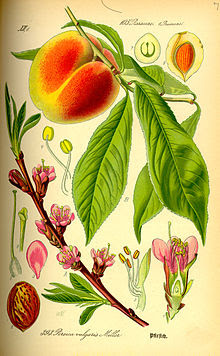Daily Consumption of Tea Protects
the Elderly From Cognitive Decline
 Tea drinking reduces the risk of
cognitive impairment in older persons by 50 per cent and as much as 86 per cent
for those who are genetically at risk of Alzheimer’s
Tea drinking reduces the risk of
cognitive impairment in older persons by 50 per cent and as much as 86 per cent
for those who are genetically at risk of Alzheimer’s
Newswise, March 20, 2017 — A cup of
tea a day can keep dementia away, and this is especially so for those who are
genetically predisposed to the debilitating disease, according to a recent
study led by Assistant Professor Feng Lei from the Department of Psychological
Medicine at National University of Singapore’s (NUS) Yong Loo Lin School of
Medicine.
The longitudinal study involving 957
Chinese seniors aged 55 years or older has found that regular consumption of
tea lowers the risk of cognitive decline in the elderly by 50 per cent, while
APOE e4 gene carriers who are genetically at risk of developing Alzheimer’s
disease may experience a reduction in cognitive impairment risk by as much as
86 per cent.
The research team also discovered
that the neuroprotective role of tea consumption on cognitive function is not
limited to a particular type of tea – so long as the tea is brewed from tea
leaves, such as green, black or oolong tea.
“While the study was conducted on
Chinese elderly, the results could apply to other races as well. Our findings
have important implications for dementia prevention.
“Despite high quality drug trials,
effective pharmacological therapy for neurocognitive disorders such as dementia
remains elusive and current prevention strategies are far from satisfactory.
Tea is one of the most widely consumed beverages in the world.
“The data from our study suggests
that a simple and inexpensive lifestyle measure such as daily tea drinking can
reduce a person’s risk of developing neurocognitive disorders in late life,”
explained Asst Prof Feng.
He added, "Based on current
knowledge, this long term benefit of tea consumption is due to the bioactive
compounds in tea leaves, such as catechins, theaflavins, thearubigins and
L-theanine.
“These compounds exhibit
anti-inflammatory and antioxidant potential and other bioactive properties that
may protect the brain from vascular damage and neurodegeneration. Our
understanding of the detailed biological mechanisms is still very limited so we
do need more research to find out definitive answers."
In this study, tea consumption
information were collected from the participants, who are community-living
elderly, from 2003 to 2005. At regular intervals of two years, these seniors
were assessed on their cognitive function using standardised tools until 2010.
Information on lifestyles, medical
conditions, physical and social activities were also collected. Those potential
confounding factors were carefully controlled in statistical models to ensure
the robustness of the findings.
Future Research
Asst Prof Feng and his team are
planning to embark on further studies to better understand the impact of Asian
diet on cognitive health in ageing. They are also keen to investigate the
effects of the bioactive compounds in tea and test them more rigorously through
the assessment of their biological markers and by conducting randomised
controlled trials or studies that assign participants into experimental groups
or control groups randomly to eliminate biased results.



